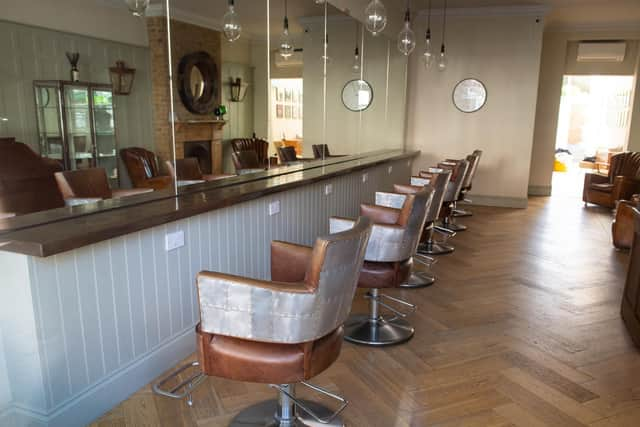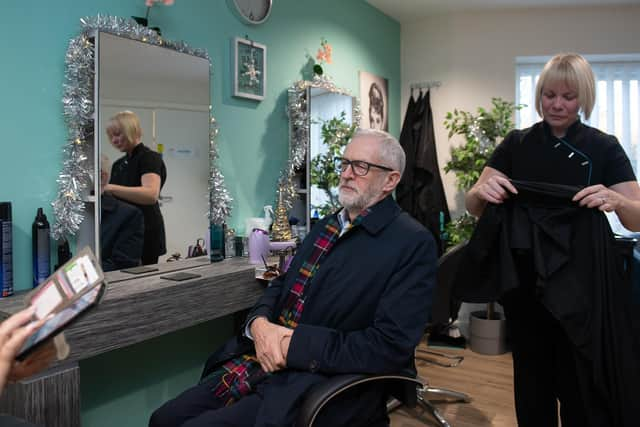Lockdown has shown why we need to start respecting our hairdressers - Sharon Brigden
In a survey carried out by booking system, Treatwell, at the beginning of April almost half of those surveyed said visiting a hair and beauty salon is in the top three activities they plan to do once restrictions are lifted. The British Beauty Council’s (sister organisation to the British Fashion Council) survey published last year recorded UK spending on beauty products and services in 2018 at £27.2bn, exceeding the value to the UK economy of British motor vehicle manufacturing.
The report, which was produced by Oxford Economics, also stated that 590,500 jobs are supported by the British beauty industry – this equates to one in every 60 jobs in the UK economy and our greatest spend is on hair. As a nation we spend £6.2bn each year to have our locks cut, coloured and styled and beards trimmed.
Advertisement
Hide AdAdvertisement
Hide AdIn 2019 hair and beauty salons in the Yorkshire & Humber region alone generated a turnover of over £490m – 6.5 per cent of the national total turnover, according to a survey by the National Hair & Beauty Federation.


And this doesn’t include revenue from beauty concessions in department stores, or cosmetics and body products sold in supermarkets or independent stores, nor does it include freelance hair, barber, beauty, aesthetic, nail or make-up artist professionals.
Anecdotal evidence highlights the risks clients are willing to take and the price they wish to pay to have their hair cut, beards trimmed, roots retouched, eyelash extensions replaced during lockdown. I know of several hair and beauty colleagues who have been offered over three times their normal price.
The national media’s obsession with, and to be fair, hard evidence of, freelance professionals operating illegally shows the public’s desire to put themselves at risk in order to look the way which makes them feel good.
Advertisement
Hide AdAdvertisement
Hide AdAnyone who knows me knows I am always banging on about the importance of hair and beauty to our society and economy.


The way people feel about how they look is intrinsically linked to their wellbeing and mental health. This is not the same as trying to conform to a particular perception of beauty – which can be harmful – this is about something deeper and more personal, about what we each require to help us face the world and deal with our everyday lives.
By treating the hair and beauty industry as a ‘last resort’ for a career choice or dismissing as less worthy than other professions equates to saying our general wellbeing is not important plus it demeans the extensive training, skills and experience of those people who work within the industry.
Sadly, the new Brexit immigration rules identify hairdressers as ‘low skilled’. I’m not sure about you but I’m not prepared to risk my ultra blonde highlights with someone ‘low skilled’. It’s certainly not how I’d describe the current British Hairdresser of the Year, Yorkshire’s uber-talented Robert Eaton, or the teams at Leeds’ Tint and Architect salons who are in demand for Milan, Paris and London Fashion Weeks or the make-up artists at ITV and those who regularly travel the world for film and TV work.
Advertisement
Hide AdAdvertisement
Hide AdLet’s hope that this new elevated status remains after lockdown – that the media stop using terms like ‘crimper’ and recognise hair and beauty professionals for the trained experts which they are.
That schools and career advisers, and parents, stop regarding a career in hair and beauty as unattractive.
The opportunities are amazing in this hugely supportive, flexible, diverse and inclusive industry.